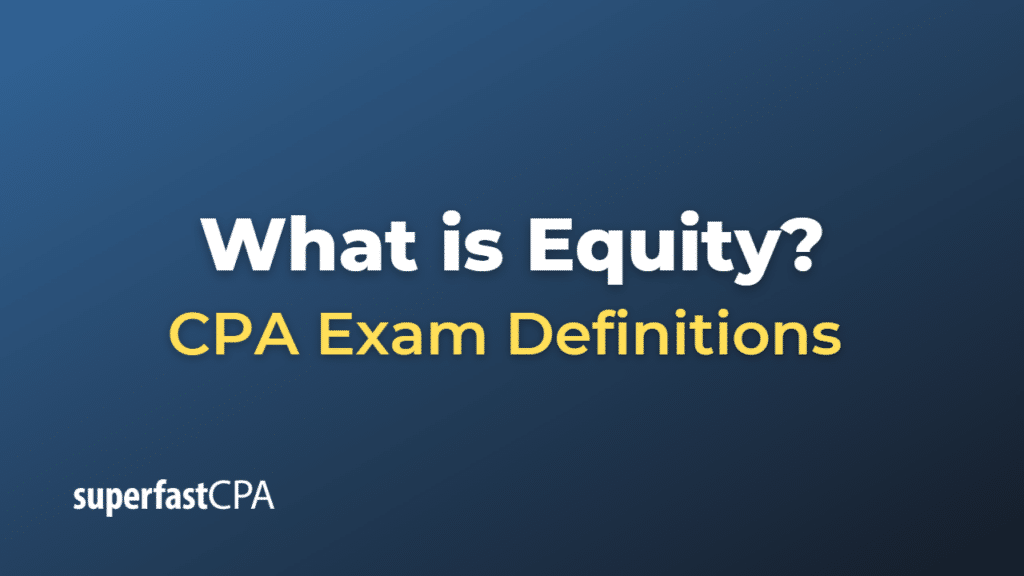Equity
Equity has different meanings depending on the context:
- In Finance and Accounting: Equity represents ownership interest in a company. It is the residual interest in the assets of the entity after deducting liabilities. In other words, equity is the amount that would be returned to a company’s shareholders if all of the assets were liquidated and all of the company’s debts were paid off. It’s also known as “shareholder’s equity” or “net assets.
- In Real Estate: Home equity is the market value of a homeowner’s unencumbered interest in their real property — that is, the difference between the home’s fair market value and the outstanding balance of all liens on the property.
- In Law: Equity is a branch of law that was developed as a supplement to the strict statutory laws that may provide too harsh or insufficient remedies. Courts of equity provide solutions based on fairness and justice.
- In Investing: In the context of stock market investing, equity refers to stocks — a security that signifies ownership in a corporation and represents a claim on part of the corporation’s assets and earnings.
- In Business: Business or startup equity refers to ownership shares that are distributed to business founders, employees, or investors. This is often in exchange for capital, sweat equity, or in the case of employees, in addition to or instead of wages.
- In Social Justice: Equity in terms of social issues refers to fairness and justice in policy, distribution of resources, opportunities, and outcomes for all people. It goes beyond equality by aiming to provide everyone with the resources they need to succeed.
Each of these examples refers to a form of ownership, value, fairness, or justice. The specific interpretation depends on the field and context in which the term is used.
Example of Equity
I’ll provide examples in a couple of the contexts I mentioned.
- In Finance and Accounting: Let’s say you start a small business and invest $50,000 of your own money. Then you take out a loan for $20,000 to cover additional start-up costs. At this point, your company’s balance sheet shows total assets of $70,000 (your investment plus the loan). But you also have a liability: the $20,000 loan. So, your equity in the business would be $50,000 ($70,000 in assets minus $20,000 in liabilities).
- In Real Estate: Assume you bought a house for $200,000 with a down payment of $50,000. This means you took a loan (mortgage) of $150,000. After several years, you’ve paid down $50,000 of the mortgage balance, and the value of your house has increased to $250,000. Your home equity is now $150,000 (the current market value of $250,000 minus the remaining loan balance of $100,000).
- In Investing: Consider that you’ve purchased 100 shares of Company ABC at $10 per share, costing you $1,000. This $1,000 represents your equity stake in Company ABC. If the company does well, its stock price may rise, increasing the value of your equity. However, if the company does poorly, its stock price may fall, decreasing the value of your equity.
- In Social Justice: For instance, let’s consider a school system providing free lunch to all students. This is equality because every student is getting the same thing, a free lunch. But if we look at it from an equity perspective, some students may come from families that could afford to provide their own lunch, whereas others might come from families that rely on these free lunches as the primary meal for their children. Providing additional resources, like extra meals to take home, for these needy students would be an act towards equity, providing them what they need to be at the same level as their peers.
Remember, these examples are quite simplified, and real-world situations will typically involve more complex considerations.













